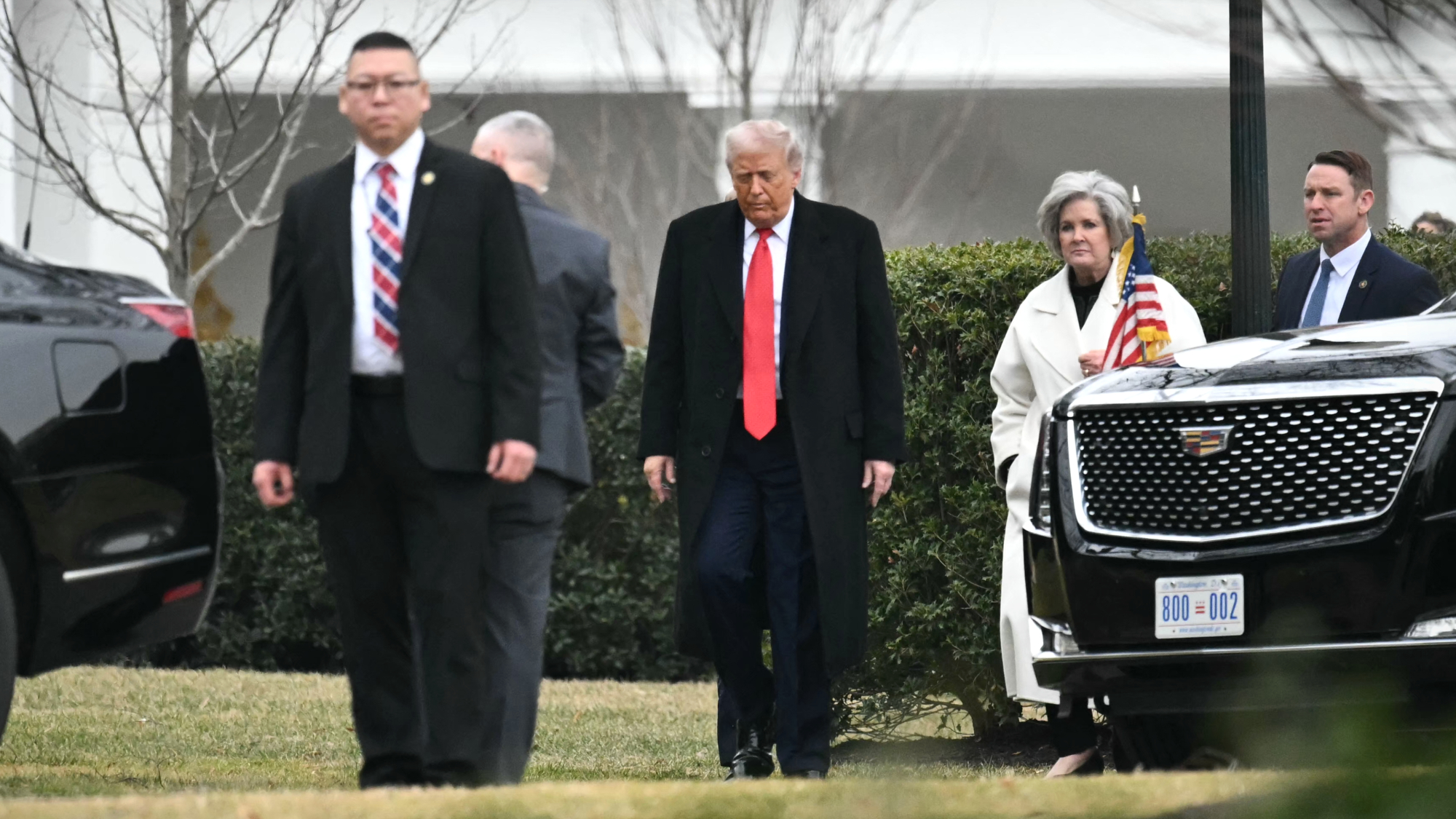Can Republicans take back suburbia in 2020?
4 big issues that could sway the suburban vote in the next election cycle


A free daily email with the biggest news stories of the day – and the best features from TheWeek.com
You are now subscribed
Your newsletter sign-up was successful
The suburbs turned out to be the decisive battlegrounds in 2018's midterm elections. All signs suggest 2020's elections will be fought on the same turf.
Republicans lost voters in the midterms not just in the "dense suburban" districts closest to the urban cores, where Democrats already led, but also in "sparse suburban" districts where President Trump had built considerable support, as FiveThirtyEight's Geoffrey Skellen explained at the time. While it isn't unusual for the administration's party to lose seats in the midterms, the losses were larger than Republicans had expected. After seeing their electoral footprint shrink to the cities and the coasts over several cycles, Democrats came out of the midterms believing they had found a way to a Senate majority — and potentially a clear Electoral College win for the White House.
They had reason for confidence in their 2020 campaign: They had made Trump himself the focus of their midterm election agenda, arguing for a corrective against his behavior and the need for a check on his policies. Rather than focusing on his administration's economic gains, Trump had made immigration the central focus for the GOP. Under the circumstances, it appeared Democrats had won the battle for the political and geographic middle ground.
The Week
Escape your echo chamber. Get the facts behind the news, plus analysis from multiple perspectives.

Sign up for The Week's Free Newsletters
From our morning news briefing to a weekly Good News Newsletter, get the best of The Week delivered directly to your inbox.
From our morning news briefing to a weekly Good News Newsletter, get the best of The Week delivered directly to your inbox.
But results from North Carolina's recent special election might prove otherwise. The voting pattern in NC-09 showed that, despite narrowly losing this seat in a fairly strong Republican district, Democrats remained strong in the suburbs, David Wasserman at The Cook Political Report concluded. However, his colleague Amy Walter pointed out that while this was true in suburbs abutting major urban centers, it was not the case near smaller cities, or in more "ethnically and racially diverse" suburbs, either. "And in fact," Walter noted, "that gap between Democratic performance in the big-city suburbs versus the smaller/medium city suburbs has grown wider over the last 24 years."
Of course, even if that were true, the momentum of 2018 might make that good enough for 2020. After all, there are more votes to mine in big-city suburbs than in smaller metropolitan areas. However, that assumes that the context of the election will remain static between 2018 and 2020 — and that may be where Democrats run into problems. Here are four factors that may keep the suburbs in play in the next presidential cycle:
Disappearing independents. The increasingly strident rhetoric on both sides of the political aisle might be hastening the erosion of truly unaffiliated voters. Everyone feels the pressure not just to choose sides but to live politicized lives. In such an environment, both parties will increasingly turn to strategies that play to their bases rather than convince those in the center to flip. According to Julia Manchester at The Hill, pollsters see most of the truly independent voters congregated in swing districts — the same suburban districts that flipped in 2018.
This could mean that, despite independents' dwindling numbers, their location might make them even more influential in both presidential and congressional races. To win them, public-affairs adviser Jennifer Holdsworth told The Hill, Democrats can't just talk about Trump but must "connect with voters about the issues that matter to them." So far, the 2020 presidential contenders have pressed far to the left on issues and have made Trump the centerpiece of their campaigns. Moderates have been squeezed out of the running, with the exception of frontrunner and former Vice President Joe Biden, and even he has had trouble connecting with swing voters.
A free daily email with the biggest news stories of the day – and the best features from TheWeek.com
Impeachment. In 2018, the special counsel investigation into "Russiagate" was still very much in play. Democrats pressed hard on the potential necessity to remove Trump because of an illegitimate election in 2016. That fueled turnout among Democrats while potentially depressing the Republican vote. Former Special Counsel Robert Mueller's report ended the Russiagate narrative, which means that voters won't be responding to a legitimacy argument in the next election.
On top of that, continuing efforts by Democrats to impeach Trump might well backfire by enraging the same voters who sat out in the midterms. While popular among progressive activists, polling on impeachment among all voters has always been poor and is now declining even further. Democrats are now issuing double-talk statements on impeachment while holding hearings to demand that marginal figures like former Trump campaign manager Corey Lewandowski read aloud from the Mueller report. The more they talk about impeachment, the less voters — perhaps especially suburban voters — will feel Democrats are focused on them.
Immigration. This cuts both ways. Trump made a strategic error in filling his midterm messaging with dire tales of "invasions," which clearly turned off swing voters. One year later, however, the border situation has settled down, thanks in large part to Trump's maneuvering with Mexico and a fight to change asylum rules at the border. If he can maintain both of those policies, Trump and the GOP can replace the scare stories with claims of progress. If, on the other hand, Trump returns to his hysterical rhetoric about invading hordes, or if border security breaks down, those suburban voters might stay on the other side of the aisle in disgust.
In contrast, Democrats have insisted on swinging further to the left on immigration. So many of their presidential contenders have spoken about decriminalizing border crossings that former Obama-era attorney general Eric Holder had to rebuke them publicly, telling CNN's David Axelrod: "Borders mean something."
Open borders might sell well in Democrats' progressive power base of urban cores, and perhaps even a little in agriculture-heavy areas where cheap labor means better bottom lines. But it won't sell in the suburbs.
The economy. The conventional wisdom applies in any election: "It's the economy, stupid" But it's even more relevant in 2020. Trump missed an opportunity to take advantage of robust growth in 2018, choosing to focus the midterms on immigration. The economy has slowed in 2019, a big danger to Trump's re-election, especially in suburbs where much of that growth was felt. If Trump can recharge electrical growth, he'll get rewarded at the polls. If not, his argument for a second term will fall on deaf ears.
The most recent special elections suggest Republicans still have time to win back their lost ground in suburbia. And if Democrats don't get out of the progressive bubble they seem to be building in their presidential primaries, Republicans won't have to take suburbia back, they'll have it handed to them.
Want more essential commentary and analysis like this delivered straight to your inbox? Sign up for The Week's "Today's best articles" newsletter here.
Edward Morrissey has been writing about politics since 2003 in his blog, Captain's Quarters, and now writes for HotAir.com. His columns have appeared in the Washington Post, the New York Post, The New York Sun, the Washington Times, and other newspapers. Morrissey has a daily Internet talk show on politics and culture at Hot Air. Since 2004, Morrissey has had a weekend talk radio show in the Minneapolis/St. Paul area and often fills in as a guest on Salem Radio Network's nationally-syndicated shows. He lives in the Twin Cities area of Minnesota with his wife, son and daughter-in-law, and his two granddaughters. Morrissey's new book, GOING RED, will be published by Crown Forum on April 5, 2016.
-
 The year’s ‘it’ vegetable is a versatile, economical wonder
The year’s ‘it’ vegetable is a versatile, economical wonderthe week recommends How to think about thinking about cabbage
-
 Moltbook: The AI-only social network
Moltbook: The AI-only social networkFeature Bots interact on Moltbook like humans use Reddit
-
 Judge orders Washington slavery exhibit restored
Judge orders Washington slavery exhibit restoredSpeed Read The Trump administration took down displays about slavery at the President’s House Site in Philadelphia
-
 House votes to end Trump’s Canada tariffs
House votes to end Trump’s Canada tariffsSpeed Read Six Republicans joined with Democrats to repeal the president’s tariffs
-
 How are Democrats trying to reform ICE?
How are Democrats trying to reform ICE?Today’s Big Question Democratic leadership has put forth several demands for the agency
-
 Is Alex Pretti shooting a turning point for Trump?
Is Alex Pretti shooting a turning point for Trump?Today’s Big Question Death of nurse at the hands of Ice officers could be ‘crucial’ moment for America
-
 Halligan quits US attorney role amid court pressure
Halligan quits US attorney role amid court pressureSpeed Read Halligan’s position had already been considered vacant by at least one judge
-
 House approves ACA credits in rebuke to GOP leaders
House approves ACA credits in rebuke to GOP leadersSpeed Read Seventeen GOP lawmakers joined all Democrats in the vote
-
 The billionaires’ wealth tax: a catastrophe for California?
The billionaires’ wealth tax: a catastrophe for California?Talking Point Peter Thiel and Larry Page preparing to change state residency
-
 Vance’s ‘next move will reveal whether the conservative movement can move past Trump’
Vance’s ‘next move will reveal whether the conservative movement can move past Trump’Instant Opinion Opinion, comment and editorials of the day
-
 Bari Weiss’ ‘60 Minutes’ scandal is about more than one report
Bari Weiss’ ‘60 Minutes’ scandal is about more than one reportIN THE SPOTLIGHT By blocking an approved segment on a controversial prison holding US deportees in El Salvador, the editor-in-chief of CBS News has become the main story
